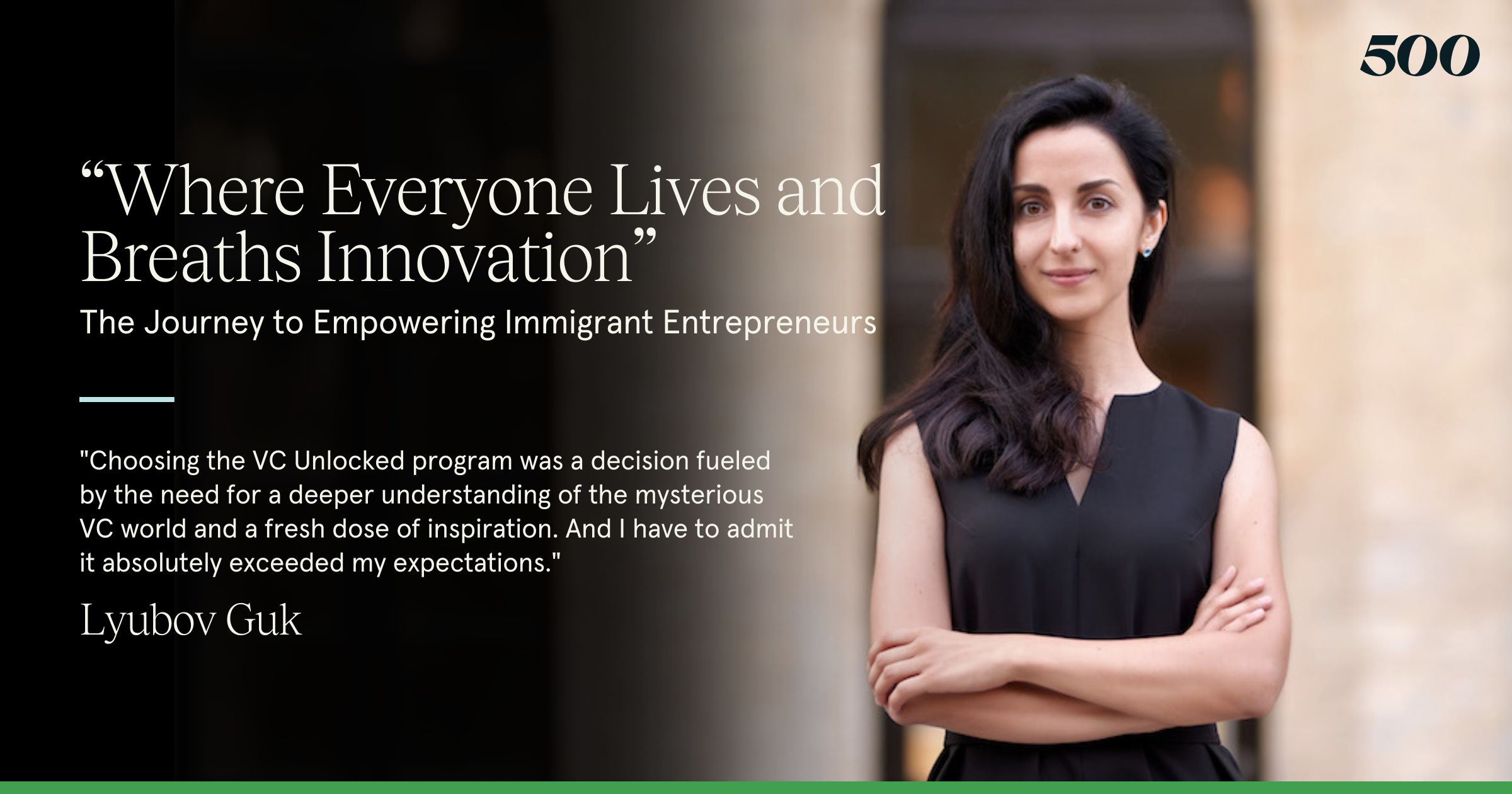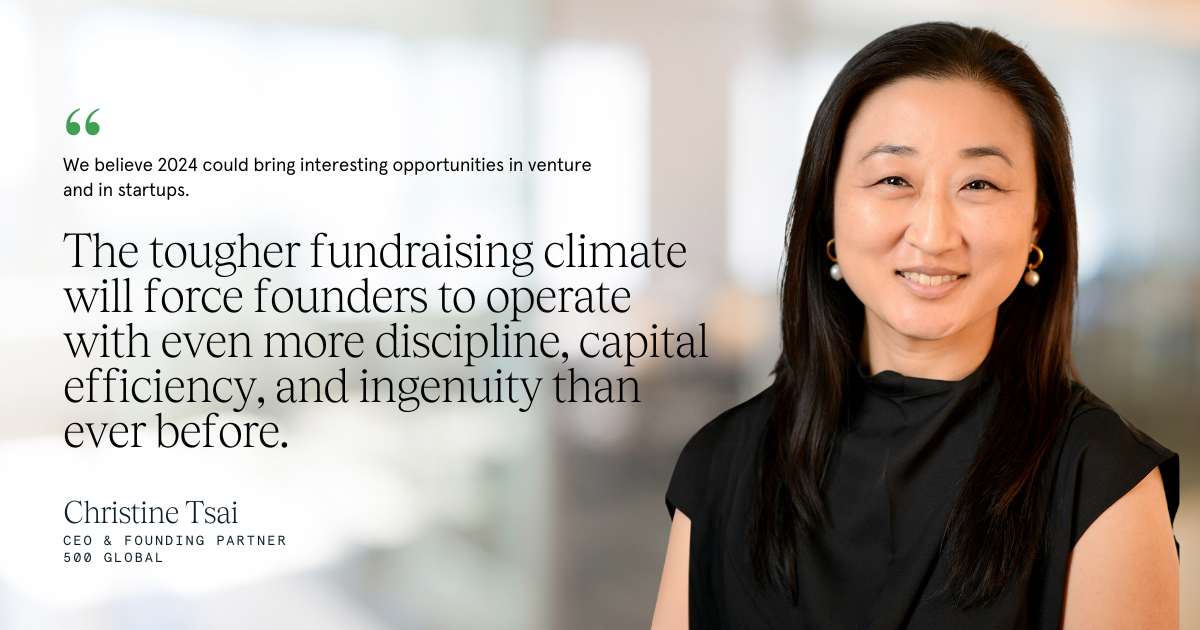PreMoney, our one-day conference on the future of venture capital, takes place on October 2nd in San Francisco. We’re putting the final touches on the program as we speak and we’re thrilled about the amazing speakers and discussions we’ve lined up.
With just one week until the event, we’re sharing some of the biggest lessons we’ve learned from these VCs.
Hacking value before hacking growth
Floodgate’s Ann Miura-Ko delivered the final keynote at last year’s PreMoney and was so inspiring we had to ask her back. During her talk on Redefining Intelligent Growth, Ann challenged the audience, asking if it’s “really necessary to consume this much capital before we learn the lesson that maybe the startup isn’t going anywhere?”
The job of a startup is to accumulate as many customers as possible with the least amount of effort and capital, said Ann. VCs should encourage entrepreneurs to focus on seeking truth—defining the value they’re delivering to customers—instead of chasing metrics for their next raise.
Check out our recent blog post on why we’re excited to have Ann back at PreMoney this year.
The real job of a VC
Do aspiring VCs really know what they’re getting themselves into?
It’s a question that Hunter Walk, partner at Homebrew VC, posed on his blog after a series of conversations with people interested in breaking into the industry.
“I have never heard someone say “I want to be an investment manager and a salesperson” despite this being THE fundamental job responsibility of a venture capitalist. And I think that’s one reason why we’re seeing more boomerangs from Operating to Venture and then back to Operating (or changing VC firms). People didn’t actually realize what the job was going to be and didn’t like it or underperformed or realized they chose the wrong firm (in terms of culture, strategy, quality) from which to base their career.”
Unicorn-hunting ain’t always glamorous, folks. We’re excited to have Hunter deliver a dose of reality at our PreMoney panel on “The Softbank Effect: How Massive Funds are Impacting the Industry.”
3 questions to ask when investing in deep tech
NYC-based Lux Capital is known for making audacious bets on frontier technology.
During a recent conversation with Fortune, Renata Quintini, partner at Lux, discussed some of the filters her team uses to address the technical risk behind their moonshot investments. She asks three simple questions when assessing a deep tech company:
- Why now? “It’s a combination of either platform changes or a new sequence of discoveries — a big change that opens up a bunch of new experiments that weren’t possible before,” says Renata.
- Is this feasible in a Venture time frame? “If a founder says they’ll spend 15 years developing something, it doesn’t work for the model.”
- How do you build a business in that time? A lot of founders in deep tech are “more purpose-driven than opportunistic” say Renata, and that’s what makes it such an interesting space.
Don’t miss Renata at the “Passing the Torch: Navigating Generational Change in VC” panel at PreMoney.
Geographic diversity and investing outside the Bay Area
“Raising Your First $30MM Fund” is a new panel at PreMoney, and feels particularly relevant with all the generational change in the industry this year.
One of the first invitations went to Semil Shah, a Venture Partner at Lightspeed and GP at Haystack. Semil has been making waves this year, appearing on the Recode Decode podcast with Kara Swisher recently and putting us all to shame with the sheer number of blog posts he puts out in a given month.
We’re a bit biased, but his piece on “Investing Outside the Bay Area” really caught our eye.
“And, so, I began to ask myself, in the face of intense local inflation for rents, for talent, for simply getting around — are the fundamental of the Bay Area’s local conditions simply inhospitable to fledgling startups that I am trying to invest in? Will folks be able to buy a house and raise their families here? Will the Bay Area’s cost structure compress the precious runway these newco’s have? Will the next company to raise $100M in financing just poach from decent seed-stage companies and pay triple the amount to lock up talent?”
VC groupthink and its effect on startups
VCs love a good tweetstorm, hell, we invented them! This recent one from Garry Tan of Initialized Capital was so good I think I’ll just leave it here….
All startups are either virtuous or vicious cycles that at the moment are inflecting upwards or downwards.
At all times they are either collecting or losing:
Capital
Customers
CraftspeopleAdding each helps you a bit on others. Losing each likewise hurts.
— Garry BUIDL Tan (@garrytan) August 12, 2018
Garry will be dropping additional knowledge during his afternoon keynote.
Don’t try to recreate Silicon Valley in your ecosystem

As usual, 500’s fearless leader Christine Tsai will kick things off with her opening remarks. Christine always brings a global perspective to our work at 500 and that was on display at the recent WEF Annual Meeting of New Champions (aka the “Summer Davos”):
“I don’t think it is realistic to say you want to recreate Silicon Valley,” said Christine. “I think it is more important to think about what are you are trying to bring from Silicon Valley into your market, to help spur entrepreneurship and build the ecosystem that will help start-ups thrive.”
Interested in attending PreMoney? Here’s a special discount code for the event. Buy your ticket today and save 20% with promo code 500BLOG.




